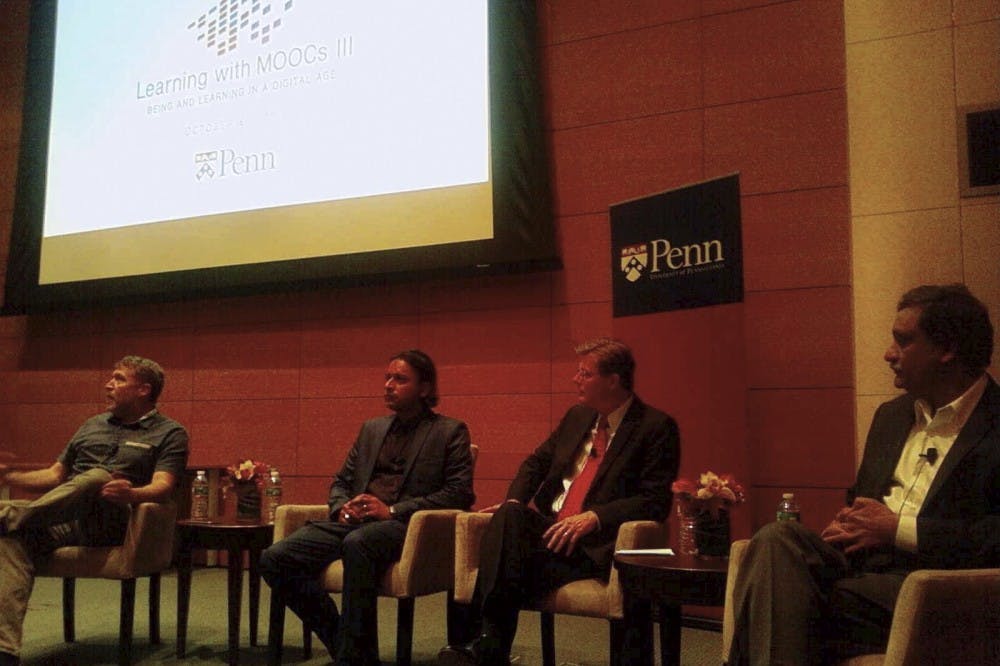Last week, Penn hosted the Third Annual Learning with MOOCs Conference, bringing together leaders in the mass learning system.
MOOCs — Massive Online Open Courses — were created in 2008, and since then, various universities have started offering free courses. Through a grant from the United States Department of State, Penn has also begun offering MOOCs.
Provost Vincent Price and CEO of edX, Anant Agarwal, were among the panelists who discussed the development of the MOOCs and their visions for the future at the conference on Oct. 6 and 7.
Agarwal described MOOCs as a response to what he believes is a broken current educational system. He calls his solution the “unbundling” of the four-year educational system provided by universities and colleges.
“What’s magical about four years on a campus?” he asked.
Agarwal wants to see a more diverse learning system, blending MOOCs at schools like Penn and “high-touch” in-class learning for courses like robotics.
Gradually, the principle of online learning is beginning to seem less and less foreign.
As early as 2013, the American Council on Education supported such action for the widespread integration of learning with MOOCs.And according to U.S. News and World Report, online degrees are rapidly increasing in recent years, and the acceptance of these degrees are becoming more common.
Ironically, it’s the for-profit online courses provided by schools like the University of Phoenix that are suffering in both reputation and success rates after graduation.
But the stigma against MOOCs is changing, thanks to the implementation of updated technologies to improve the legitimacies of the courses taken online.
“Part of the stigma [relating to online courses] is due to the lack of technology in the early years of the 2000s,” said John Cotton, a MOOCs instructor and manager of staff development in the English Language Programs.
Online course providers now have the ability to actively maintain the good standing of their courses. According to Cotton, the typing-speed recognition software that identifies each person based on how they type is a key component of keeping fraud away from these courses.
Like Agarwal, Provost Vincent Price raved about the transformative qualities of MOOCs. He believes that the “unbundling of the clock” is necessary for effective revision of the educational system and that introducing more MOOCs allows for more focus on research, where “the real learning takes place.”
For Cotton, “real learning” is central to MOOCs, as are pivotal student-instructor interactions. He stressed acknowledgement of students as an integral part of the course.
“Students seem to be most happy when they actually get to interact with the instructors,” he said.
On the topic of what Agarwal calls a “broken” educational system, Price had a milder stance. He didn’t call it “broken,” but did mention certain flaws that make it seem outdated.
“The current credit system doesn’t measure learning,” he said. “It measures time.”
With an eye on the future, Price acknowledged that the development and acceptance of MOOCs is far from over.
“I am optimistic because higher education as we know it has been around for years and thrives on solving problems we now face,” he said.









